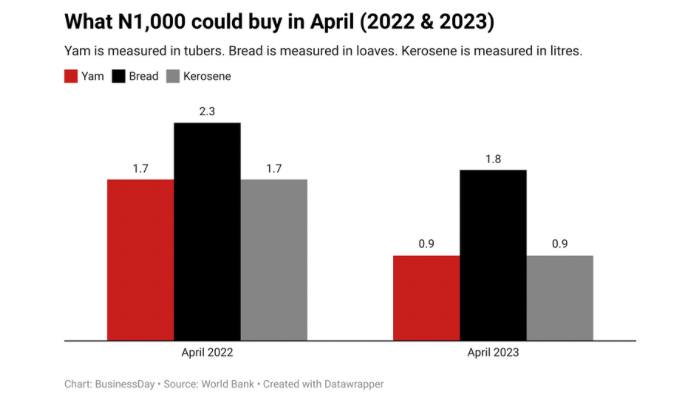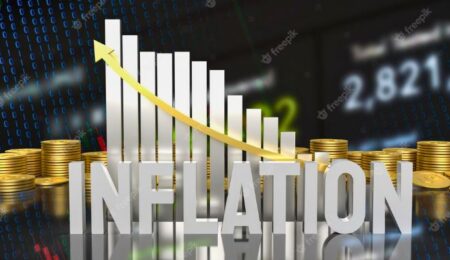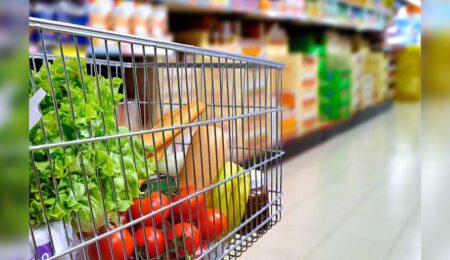Nigeria’s recent economic reforms making foreign investors excited are robbing households of their spending power, inflicting more pain and renewing pressure on them.
Subsidy removal, naira devaluation, and the implementation of a value-added tax on diesel imports are causing further spikes in the prices of goods and amplifying a cost-of-living crisis in Africa’s biggest economy.
The World Bank, in its latest Nigeria Development Update report for June 2023, said the loss of purchasing power from high inflation has increased poverty in the short term, pushing an estimated four million Nigerians into poverty between January – May 2023.
The global bank estimates based on the National Bureau of Statistics (NBS) data show that 89.8 million Nigerians fell below the poverty line at the start of 2023, with an additional four million making it 93.8 million in May of 2023.
The situation is likely going to worsen in July as analysts have projected a further acceleration in inflation when the 40 percent electricity tariff hike takes effect.
Read also: Cost of living to worsen on proposed 40% electricity hike
It is getting difficult daily for Nigerians, especially with the recent petrol subsidy removal and naira float and other reforms the Tinubu’s led-government is doing, Demola Balogun, a mechanic at Ketu, Lagos said.
“They are good reforms but they are seriously hurting Nigerians and businesses. My family can’t even afford to eat thrice daily anymore as prices keep soaring,” Balogun said.
The renewed pressure is not only felt by households but businesses, as well as the recent reforms are already taking their toll and threatening to keep many out of business.
“I process fruits and vegetables and I have three generators and often buy five to 10 litres of petrol daily to power my two deep freezers,” Toyin Oladimeji, chief executive officer of Ola Foods, said.
“I bought a litre of petrol for N190–N210 last month, now I buy a litre for N500–N550 since the subsidy removal. My production cost has doubled owing to this amid declining sales,” Oladimeji said.
“All this is already threatening my business which has been struggling for survival. Right now, it is really difficult for small business operators who rely on petrol to power generators,” she added.
Nigeria’s inflation at 22.41 percent in May is far outpacing wage growth, according to data from the National Bureau of Statistics, with several analysts projecting a higher double-digit rate in coming months.
The current economic realities are fueling demands for the government to ease the nation’s cost-of-living crisis and put the brakes on rising prices, by cutting down on the cost of governance as the reforms present the perfect opportunity to curb government excesses.
Despite this, Nigerian politicians are still in lavish spending as President Bola Tinubu upon his return to the country after attending a summit in France was seen with over 100 presidential bulletproof armoured vehicles.
Also, barely six days after the inauguration of Godswill Akpabio as senate president, Akpabio’s security aides were seen riding expensive exotic power bikes along his presidential convoy.
This a sign that the Tinubu led-government is not willing to share in the pain of its bold economic reforms that have left Nigerians poorer.






